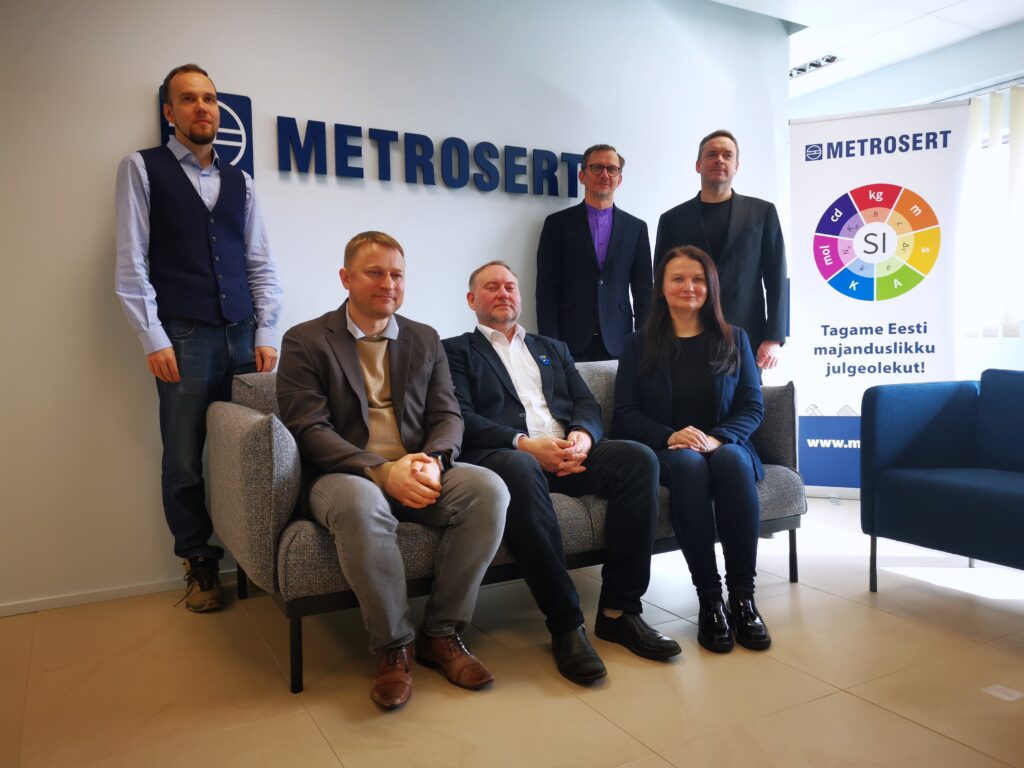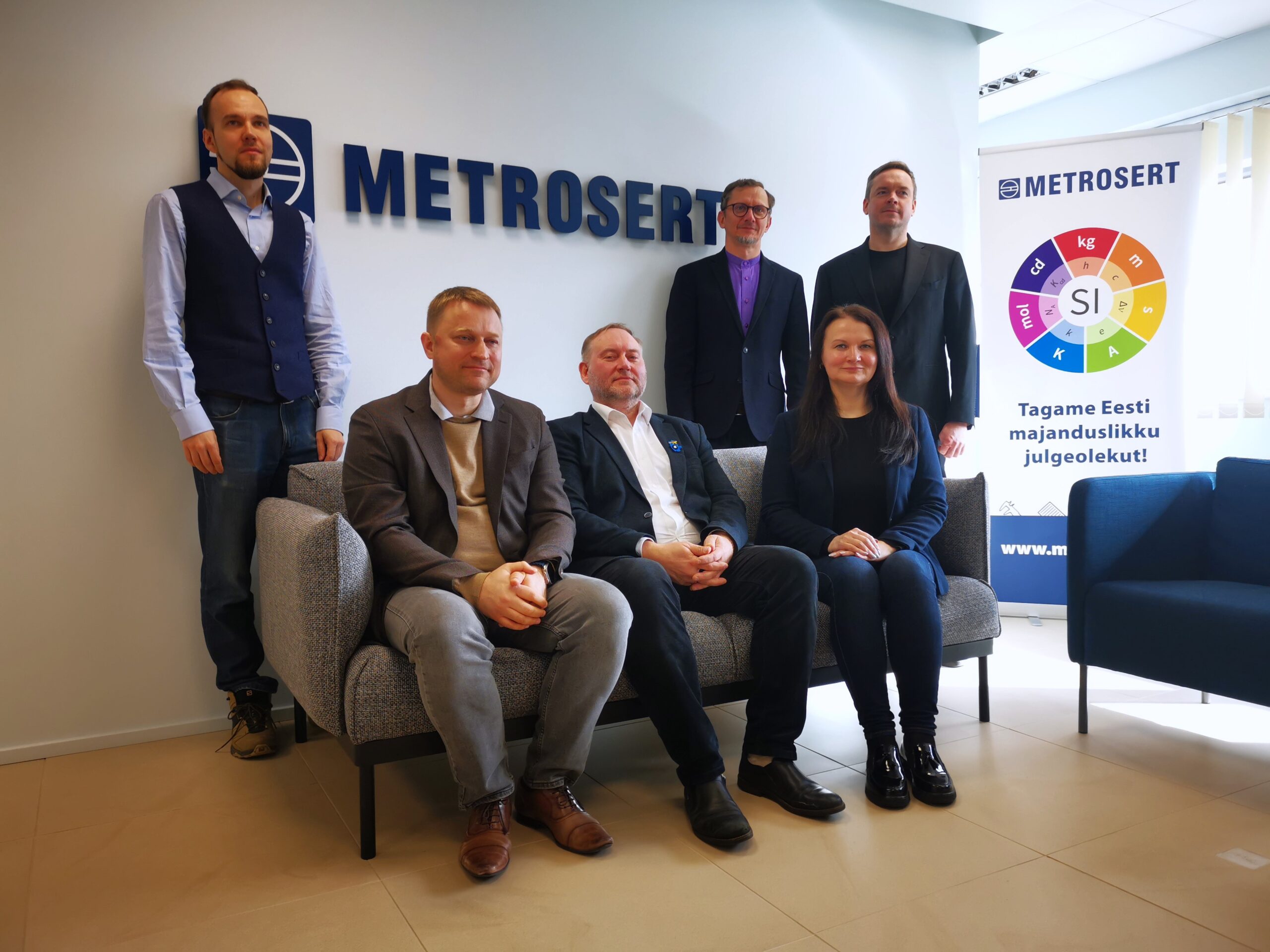Metrosert’s Applied Research Center is not just a research infrastructure, but a key link between science, business and the state, said Indrek Tulp, head of the center and Metrosert’s board member.
According to him, the Applied Research Center was set up with the aim of strengthening the competitiveness of Estonian companies, speeding up the transfer of technologies from the laboratory to the market and developing an internationally competitive knowledge-intensive industry.
“Such centres have long been an important part of the innovation system in developed countries. It is time for Estonia to catch up. Our aim is not just to test technologies – we are giving impetus to the birth of the next generation of industry that exports, creates value and puts Estonia on the map for new technologies and innovation. We want to show that Estonia is not only a digital country – we are also a value creator, a developer and an effective international partner,” he said.
The investment in the Applied Research Centre will help create the technology infrastructure that Estonian companies and researchers have been waiting for for years – from testing environments for drones and autonomous vehicles to pilot labs for biorefining and hydrogen technologies, and secure processes for health data mining. It is not a competitor to existing research institutions, but a complementary, industry-focused platform for rapid testing, development and market uptake. It is not a competitor to existing research institutions, but a complementary, industry-focused platform for rapid testing, development and market uptake.
“As a company under the Ministry of Economic Affairs and Communications, our role is to carry out applied research based on real needs and orders from companies. This means that we do not duplicate the work of universities in any area, but complement it and work closely together. We carry out joint research projects, but we also offer internships and fellowships, ensuring that every researcher and specialist finds their place in the innovation ecosystem – whether in basic science, prototyping or technology industrialisation,” said Tulp.
The Applied Research Center has launched five areas of activity:
- Drones and security: technology-driven development – Metrosert’s drone lab develops capabilities that are increasingly needed by Estonian businesses and defence. Testing technologies in real-world conditions, assessing the impact of electromagnetic interference, weather conditions, vibration, dust and other disturbances, and verifying the reliability of sensors helps to mitigate risks and develop competitive solutions.
- Autonomous vehicles: a mobile lab as a future option – In Estonia today, there is no affordable way for SMEs to test autonomous vehicles. Metrosert’s mobile field laboratory is a ground-breaking solution in this respect – it allows testing at the customer’s site, while also supporting the Transport Agency in implementing new regulations.
- Hydrogen technologies: connector and accelerator – Metrosert’s hydrogen technology unit will help Estonia overcome its biggest bottleneck so far – the lack of testing capacity. While prototypes used to be sent abroad, now fuel cells and electrolyzers can be tested on site. This means faster development, lower costs and new business opportunities. The centre is not just a laboratory, but a platform for hydrogen innovation, where science, business and policymaking meet.
- Biorefining: the Estonian face of the industry of the future – the biorefining unit will focus on synthetic biology. It focuses on the development of proteins, enzymes, yeasts, lipids and biopolymers. In collaboration with Estonian universities and companies, it will create an industrial scaling-up platform, giving companies a time advantage and keeping costs under control. The unit will support a sustainable transition from fossil raw materials to bio-based solutions, contributing to food security, the green revolution and the development of health technologies.
- Health data: secure and efficient data mining – Metrosert will develop high quality and secure data protocols to enable the secondary use of health data in research, development and innovation activities for new products and services, in compliance with regulations. The unit will help to generate the knowledge that will underpin the development of smarter treatments, medical technologies and digital health.
Of the €16 million earmarked for the launch of the Applied Research Center, €6 million is earmarked for drone technologies, €5 million for biorefining, €4 million for hydrogen technologies and €1 million for autonomous vehicles. The Health Data Unit does not require any investment in technology acquisition for its activities and the necessary funding to attract top specialists for the unit will come from the sale of services.

In the photo, from left, the leaders of the Applied Research Center: Priit Ilomets (Head of Hydrogen Technologies), Rainer Kivimäe (Head of Drone Technologies), Kaupo Reede (Head of Biorefining), Indrek Tulp (Member of the Board of Metrosert), Janne Pullat (Head of Health Data), Taaniel Tigas (Head of Autonomous Vehicles).
